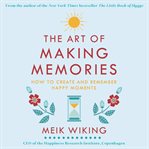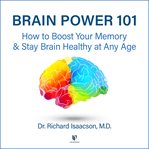To paraphrase one of the greatest philosophers of the twentieth century, Winnie-the-Pooh: you don't know you are making memories, you just know you are having fun. That was what I was doing until this year, when something happened: this year, I turned forty. Now, things are changing. Last week, I found a hair right in the middle of my forehead. And we're not talking about one hair that decided to move to the suburbs of the eyebrows here. No, we're talking about a hair that wanted to leave civilization behind. Go off grid. Into the wild. The Thoreau of eyebrow hairs. Turning forty means tweezers are your new best friend. When you turn forty your language changes; you are now entitled to use the word 'nowadays'. You see colours differently: hair is not grey - it is 'executive blond'. You find joy in new things, like leaving the oven door open after roasting vegetables to 'get the benefit of the heat'. But turning forty also means that I have lived half my life, statistically speaking. Life expectancy for men in Denmark is around eighty years and, while I may not believe in life after death, I strongly believe in making the most of life before death. So far, that life for me has yielded 40 years, or 480 months, or 14,610 days. Some days pass us by without leaving a trace - and some happy moments stick with us for ever. Our lives are not the days that have passed, but the days we will remember for ever. That got me thinking: Which of those 14,610 days do I remember? And why? How can I make more of my days more memorable in the future? How can we retrieve happy memories from the past and create happy memories in the present? I remember every first kiss - but have trouble remembering anything that happened in March 2007. I remember the first time I tasted a mango - but have no recollection of any meal I had when I was ten years old. I remember the smell of grass in the field we kids would play in - but I struggle to remember the kids' names. So what are memories made of? Why is it that a piece of music, a smell, a taste, can take us back to something we had forgotten? And how can we learn to create happy memories and be better at holding on to them? I have asked and tried to answer these questions as a happiness researcher. My job is to study happiness, to understand what makes people happy, to uncover the good life and understand how we can make life better. At the Happiness Research Institute, which is a think tank dedicated to wellbeing, happiness and quality of life, we explore the causes of happiness and work towards improving the quality of life of people across the world. Some days we remember because they were sad. They are part of our human experience, part of our memory and part of what makes us who we are. However, as a happiness researcher, my main interest is in exploring what ingredients produce happy memories. Happiness research suggests that people are happier with their lives if they tend to hold a positive, nostalgic view of the past. Nostalgia is a universal and ancient human emotion and, today, academics across the world are studying how it can produce positive feelings, boost our self-esteem and increase our sense of being loved by another. This means that long-term happiness can depend on your ability to form a positive narrative of your life. I focused my research on finding out what happy memories are made of. It has been a tricky question to pose. How do you ask strangers about memories without sounding all Hannibal Lecter? 'Tell me about your childhood memories, Clarice.' I have also asked and tried to answer these questions as an archaeologist venturing into my own past, searching to retrieve lost treasures in the form of happy memories. I've revisited my childhood home - a home the family sold twenty years ago - to discover how the scent of a place could trigger memories. Thank you to the new owners, who did not slam the door in my face when I asked, 'Can I come in and smell your house?' With this search for lost treasures comes the understanding that our childhood memories are created, shaped and retrieved in collaboration with our parents. My mother died two decades ago, and with her an entire continent of memories vanished. In that sense, this story is also a search for Atlantis. A quest for memories lost. I wanted to retrieve and restore them because our memories are the cornerstones of our identity. They are the glue that allows us to understand and experience being the same person over time. They are our superpower, which allows us to travel in time and sets us free from the limitations of the present moment. They shape who we are and how we act. They influence our mood and help form our dreams for the future. Excerpted from The Art of Making Memories: How to Create and Remember Happy Moments by Meik Wiking All rights reserved by the original copyright owners. Excerpts are provided for display purposes only and may not be reproduced, reprinted or distributed without the written permission of the publisher.


